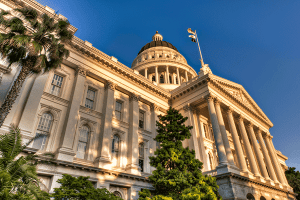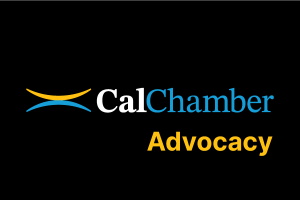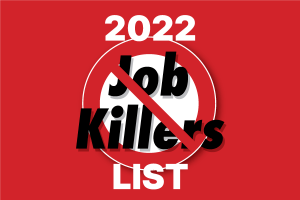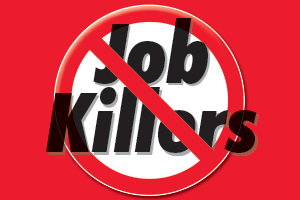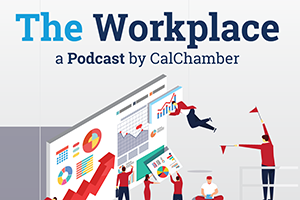
2022 Job Killer List
Related News – 2022 Job Killers
In 2022, the California Chamber of Commerce identified 19 job killer bills, voicing concern that the bills reflected a lack of appreciation of the economic realities and regulatory challenges employers—and especially small business employers—face as they continue to emerge from the impacts of the pandemic.
Just two bills identified as job killers passed the Legislature. Both were signed by the Governor.
The 2022 CalChamber job killer list appears below.
Newest Job Killers
AB 2133 (Quirk; D-Hayward) Arbitrary Greenhouse Gas Target. Arbitrarily changes the State’s GHG reduction goal from 40% of 1990 levels by 2030 to 55%. By the State’s own estimate this proposal will force 17 million gas powered cars off the road in the next 10 years. Assembly failed to concur in Senate amendments, August 31, 2022.
SB 1137 (Lena Gonzalez; D-Long Beach) Threatens Oil and Gas Development Operations. Threatens to eliminate thousands of high-paying California jobs and force California to import even more foreign oil by politicizing and undermining the California Geologic Energy Management (CalGEM) Division’s ongoing regulatory process regarding new requirements near oil and gas extraction sites by predisposing what setback requirements should be before the agency even begins its analysis. Signed. Chapter 365, Statutes of 2022.
Labor and Employment
AB 2095 (Kalra; D-San Jose) Unfair Denial of State Opportunities. Places new onerous administrative burdens on employers by requiring annual reporting of wage and hour data and employee benefits on an employer’s entire United States workforce that will unfairly criticize employers for lawful conduct by publishing that data on the Labor and Workforce Development Agency’s website and using such data to rank employers and deny them state opportunities, and will subject employers to frivolous litigation and settlement demands. Held in Assembly Appropriations Committee, May 19, 2022.
AB 2182 (Wicks; D-Oakland) Expansion of Duty to Accommodate Employees and Litigation Under FEHA. Imposes new burdens on employers to accommodate any employee with family responsibilities, which will essentially include a new, uncapped protected leave for employees to request time off and exposes employers to costly litigation under the Fair Employment and Housing Act by asserting that any adverse employment action was in relation to the employee’s family responsibilities, rather than a violation of employment policies. Held in Assembly Appropriations Committee, May 19, 2022.
AB 2183 (Stone; D-Scotts Valley) Forced Unionization Process for Agricultural Employees. Limits an employee’s ability to independently and privately vote for unionization in the workplace, by essentially eliminating a secret ballot election and replacing it with the submission of representation cards signed by over 50% of the employees, which leaves employees susceptible to coercion and manipulation by labor organizations. Also, unfairly limits an employer’s ability to challenge the cards submitted by forcing employers to post an unreasonable bond, and then limits an employee’s ability to decertify a union, by forcing them to go through the ballot election process instead of submission of representation cards. Also includes an unnecessary presumption of retaliation that is effectively unlimited in scope because it would apply for the duration of an election campaign, which could last for a year or more. Signed. Chapter 673, Statutes of 2022.
AB 2188 (Quirk; D-Hayward) Workplace Marijuana Testing. Before amendments, risked workplace safety by promoting marijuana use to a protected class under California’s discrimination law, on par with national origin or religion. Also effectively prohibited pre-employment drug testing, harming employers’ ability to keep their workplace safe and drug fee. Now requires saliva (or other non-metabolite) testing when conducting marijuana testing in pre-employment or workplace settings, along with prohibiting discrimination based on marijuana usage. Job killer status removed due to June 30, 2022 amendments which, among other provisions, protected pre-employment testing and handled federal/state conformity issues surrounding marijuana’s legality. CalChamber still opposes. Signed. Chapter 392, Statutes of 2022.
AB 2932 (Low; D-Campbell) Increased Overtime Requirement. Significantly increases labor costs by imposing an overtime pay requirement after 32 hours and other requirements that are impossible to comply with, exposing employers to litigation under the Private Attorneys General Act (PAGA). In Assembly Labor and Employment Committee. Failed deadline to move from policy committee to fiscal committee, April 29, 2022.
SB 1044 (Durazo; D-Los Angeles) State of Emergency. Allows employees to leave work or refuse to show up to work if employee feels unsafe regardless of existing health and safety standards or whether employer has provided health and safety protections and subjects employers to costly Private Attorneys General Act (PAGA) lawsuits if they dispute the employee’s decision or need to have another employee take over any job duties. Job killer tag and opposition removed due to amendments taken on August 15, 2022 narrowing the scope of the bill and recognizing existing health and safety regulations. CalChamber neutral. Signed. Chapter 829, Statutes of 2022.
SB 1162 (Limón; D-Goleta) Publication of Pay Data. Encourages litigation against employers based on the publication of broad, unreliable data collected by the state. Undermines employers’ ability to hire, imposes burdensome administrative and record keeping requirements, and subjects employers to a private right of action and penalties under the Private Attorneys General Act (PAGA). Job killer tag removed due to August 15, 2022 amendments removing requirement to publish individual pay data reports online. CalChamber still opposes. Signed. Chapter 559, Statutes of 2022.
Taxation
AB 2289/ ACA 8 (Lee; D-San Jose) Wealth Tax. Seeks to impose a massive tax increase upon all forms of personal property or wealth despite California already having the highest income tax in the country. This tax increase will drive high-income earners and job creators out of the State as well as the revenue they contribute to the General Fund. In Assembly Revenue and Taxation Committee, May 2, 2022.
AB 1771 (Ward; D-San Diego) Targeted Tax on Certain Home Sellers. Seeks to impose a tax—in addition to the capital gains tax—of 25% on the profits from a home resold within three years after it is purchased. The tax rate is reduced on a sliding scale for seven years thereafter. This will worsen housing unaffordability and constrain the already-limited housing supply. In Assembly Revenue and Taxation Committee, April 26, 2022.
SB 1301 (Becker; D-Menlo Park) Fossil Fuel Investment Surcharge. Before amendments, arbitrarily raised taxes on companies that invest in fossil fuel businesses based upon the financing amount. This added another layer of expenses onto the fossil fuel industry that would have significantly increased the costs of doing business, thereby increasing prices paid by consumers for goods and services in California. Opposition and job killer tag removed due to April 28, 2022 amendments creating a tax credit equal to 10% of the manufacturing costs associated with clean energy products, thus incentivizing investment in green energy and allowing private sector to work toward state goal of net zero emissions. CalChamber now supports the bill. In Assembly Revenue and Taxation Committee, June 2, 2022. Failed deadline.
CEQA
AB 1001 (Garcia, Cristina; D-Los Angeles) Expands CEQA and Hurts Housing. Creates new highly subjective, non-quantifiable and litigation-bait standards in CEQA that will threaten California’s economic recovery and ability to construct much-needed housing. It also removes local government discretion regarding how to analyze and mitigate proposed project impacts, thereby making projects more expensive, harder to build and more likely to be thrown into courts by NIMBY opposition. In Senate Environmental Quality Committee, May 4, 2022.
AB 2840 (Reyes; D-San Bernardino) Warehouse and Logistics Project Ban. Circumvents the California Environmental Quality Act, creates an unprecedented ban on warehouses and logistics use projects irrespective of whether there are any project impacts, usurps local authority over land use decisions, exacerbates supply chain problems, and forces union labor for proposed private projects that are not banned. In Senate Governance and Finance Committee, June 8, 2022.
Privacy and Cybersecurity
AB 1651 (Kalra; D-San Jose) Workplace Technology. Imposes overbroad, unworkable mandates on employers of all sizes, including public entities and tribal communities, that would reduce worker privacy, chill the development of new technologies, and wipe out small businesses for even a good faith mistake due to its excessively punitive enforcement mechanisms. In Assembly Privacy and Consumer Protection Committee. Failed deadline to move from policy committee to fiscal committee, April 29, 2022.
SB 1189 (Wieckowski; D-Fremont) New Private Right of Action for Biometric Information. Creates legal liability for businesses large and small, potentially in the millions to tens of millions of dollars, while not providing any exceptions, such as for the use of biometric data for safety, security, or other reasonable purposes. Also imposes new, untenable restrictions on the use and disclosure of biometric information in a thinly veiled attempt to undermine the California Privacy Rights Act (CPRA) limited private right of action for data breaches. Held in Senate Appropriations Committee, May 19, 2022.
Workers’ Compensation
SB 213 (Cortese; D-San Jose) Workers’ Compensation Presumption: Hospital Employees. Expands Costly Presumption of Injury. Significantly increases workers’ compensation costs for public and private hospitals by presuming certain diseases and injuries are caused by the workplace and establishes an extremely concerning precedent for expanding presumptions into the private sector. 2021 carry-over bill. In Assembly Insurance Committee, May 5, 2022.
Agriculture, Food and Natural Resources
AB 2764 (Nazarian; D-Van Nuys) Livestock Ban. Bans new or expanded commercial animal feeding and processing operations for meat, poultry, eggs, and dairy. Will increase food prices for Californians and force food to be imported from out of state to meet consumer demand. In Assembly Agriculture Committee. Failed deadline to move from policy committee to fiscal committee, April 29, 2022.
Carry-Over Proposals Stopped Earlier This Year
AB 1400 (Kalra; D-San Jose) Government-Run Health Care: Penalizes employers, eliminates individual choice, and results in hundreds of billions of dollars in new taxes on all Californians and California businesses by creating a new single-payer government-run, multibillion-dollar health care system.
ACA 11 (Kalra; D-San Jose) Government-Run Health Care: Penalizes employers, eliminates individual choice, and results in hundreds of billions of dollars in new taxes on all Californians and California businesses by creating a new single-payer government-run, multibillion-dollar health care system.
Cumulative Job Killer Vetoes
- 2022: 19 Job Killers identified, 2 sent to Governor Gavin Newsom, 2 signed;
- 2021: 25 Job Killers identified, 2 sent to Governor Newsom, 1 signed, 1 vetoed;
- 2020: 19 Job Killers identified, 2 sent to Governor Newsom, 1 signed, 1 vetoed;
- 2019: 31 Job Killers identified, 2 sent to Governor Newsom, 1 signed, 1 vetoed;
- 2018: 29 Job Killers identified, 1 sent to Governor Edmund G. Brown Jr., 1 vetoed;
- 2017: 27 Job Killers identified, 3 sent to Governor Brown, 2 signed, 1 vetoed;
- 2016: 24 Job Killers identified, 5 sent to Governor Brown, 4 signed, and 1 vetoed;
- 2015: 19 Job Killer bills identified, 3 sent to Governor Brown, 1 signed, and 2 vetoed;
- 2014: 27 Job Killer bills identified, 2 sent to Governor Brown, 2 signed;
- 2013: 38 Job Killer bills identified, 1 sent to Governor Brown, 1 signed;
- 2012: 32 Job Killer bills identified, 6 sent to Governor Brown, 4 signed, 2 vetoed;
- 2011: 30 Job Killer bills identified, 5 sent to Governor Brown, 1 signed, 4 vetoed;
- 2010: 43 Job Killer bills identified, 12 sent to Governor Arnold Schwarzenegger, 2 signed, 10 vetoed;
- 2009: 33 Job Killer bills identified, 6 sent to Governor Schwarzenegger, 6 vetoed;
- 2008: 39 Job Killer bills identified, 10 sent to Governor Schwarzenegger, 1 signed, 9 vetoed;
- 2007: 30 Job Killer bills identified, 12 sent to Governor Schwarzenegger, 12 vetoed;
- 2006: 40 Job Killer bills identified, 11 sent to Governor Schwarzenegger, 2 signed, 9 vetoed;
- 2005: 45 Job Killer bills identified, 8 sent to Governor Schwarzenegger, 1 signed, 7 vetoed;
- 2004: 23 Job Killer bills identified, 10 sent to Governor Schwarzenegger, 10 vetoed;
- 2003: 53 Job Killer bills identified, 13 sent to Governor Gray Davis, 11 signed, 2 vetoed;
- 2002: 35 Job Killer bills identified, 17 sent to Governor Davis, 12 signed, 5 vetoed
- 2001: 12 Job Killer bills identified, 5 sent to Governor Davis, 3 signed, 2 vetoed;
- 2000: No Job Killers identified. Of 4 bad bills identified at end of session, Governor Davis signs 2 and vetoes 2.
- 1999: 30 Job Killer bills identified, 9 sent to Governor Davis, 6 signed, 3 vetoed;
- 1998: 64 Job Killer bills identified, 11 sent to Governor Pete Wilson, 11 vetoed.
- 1997: 57 Job Killer bills identified, 9 sent to Governor Wilson, 9 vetoed.


